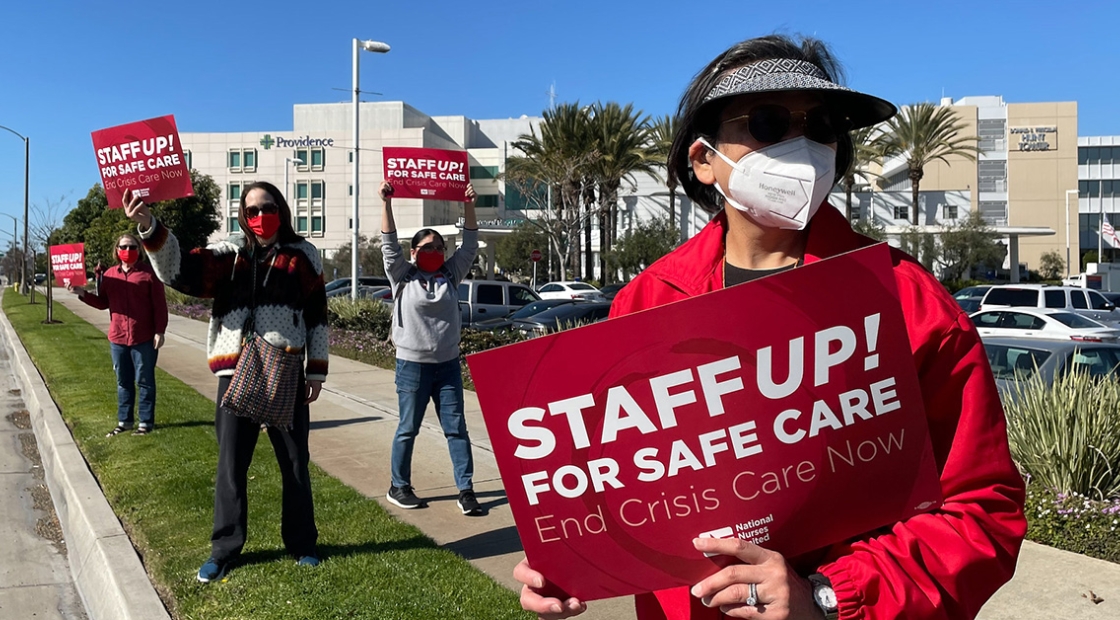California Safe Staffing Ratios
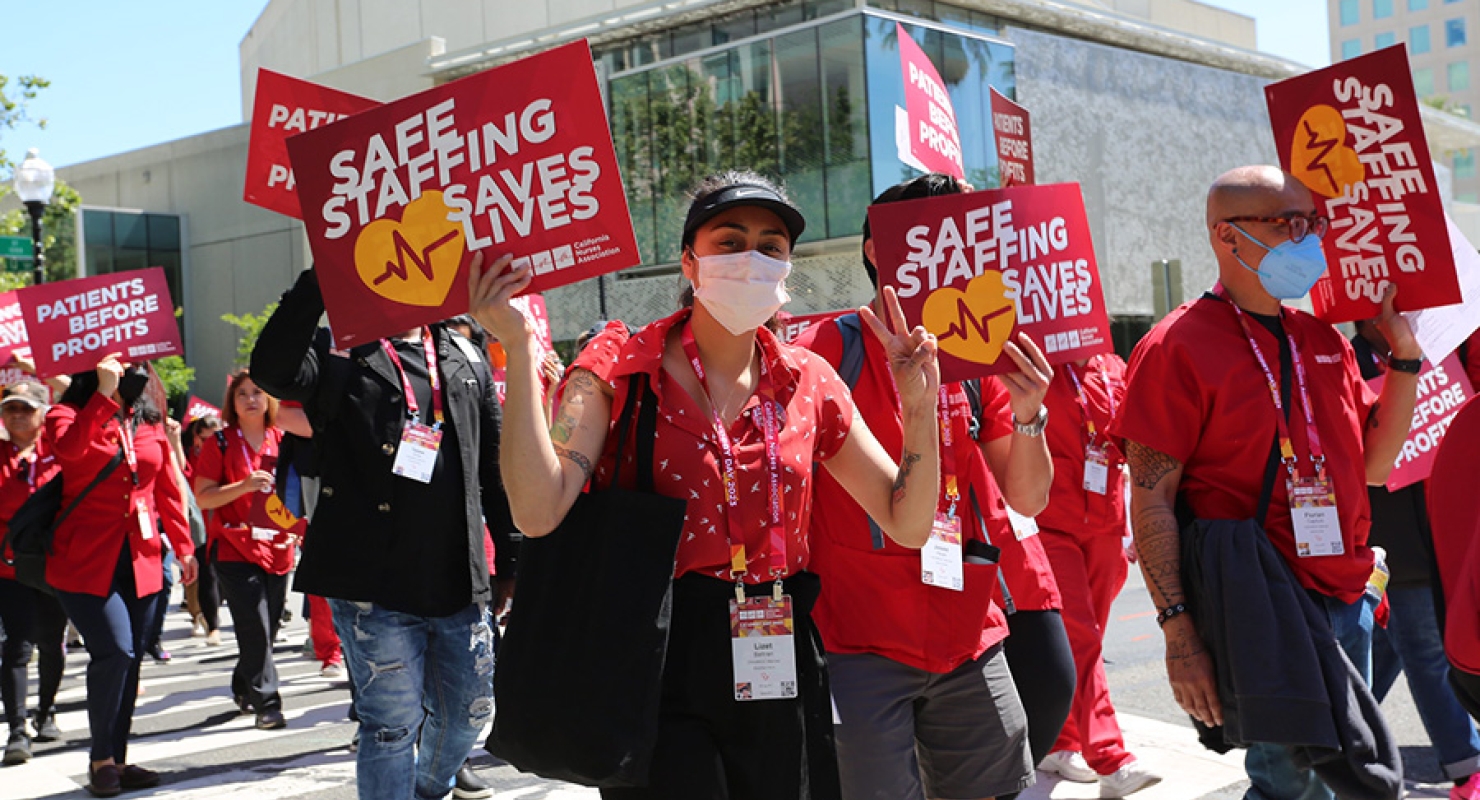
Decades of research have documented how safe staffing reduces patient mortality, re-admission to the hospital post discharge, and recovery. Currently, California is the only state to enact an enforceable RN-to-patient staffing law, thanks to the determined, multi-year efforts of members of the California Nurses Association. Ratios, coupled with nurses’ powerful voice of advocacy, protect our patients from complications that arise from missed care such as medical errors, health care disparities, infections, and so much more. Read more ».
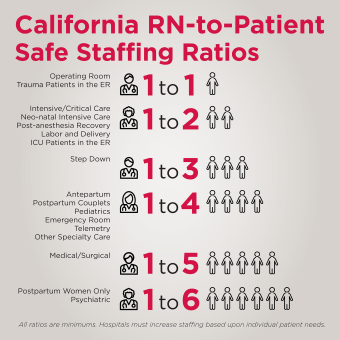
What does the California ratios law actually require?
A.B. 394, the CNA-sponsored safe staffing law, has multiple provisions designed to remedy unsafe staffing in acute-care facilities. California’s safe staffing standards are based on individual patient acuity, of which the RN ratios is the minimum.
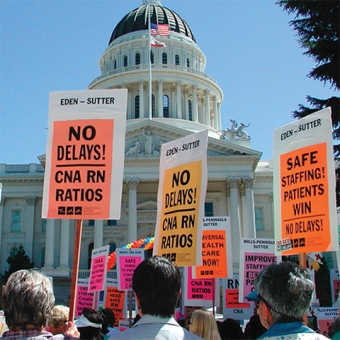
Learning from the California experience
In 1999, the registered nurses of the California Nurses Association successfully sponsored and lobbied the California Legislature to pass A.B. 394, the historic bill that made minimum, specific numerical staffing ratios the golden standard in the Golden State.
Resources
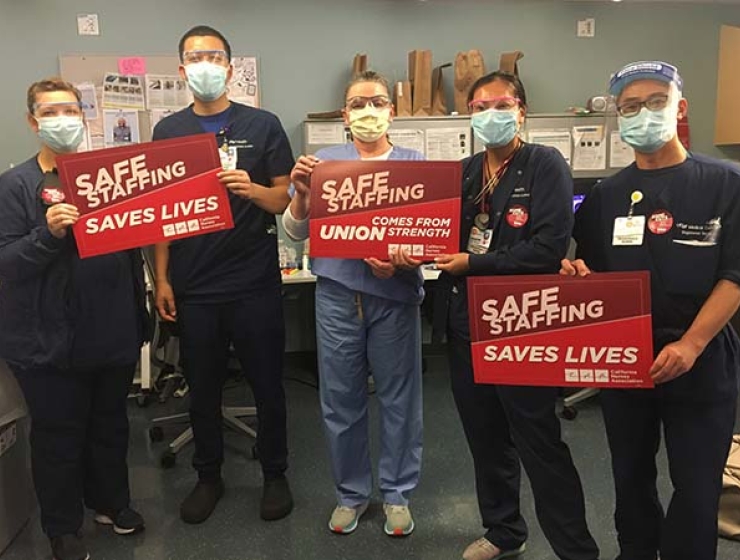
The science of ratios
Decades of studies have shown that more nurses equate to lives saved and fewer complications. Researchers have been focusing on what exactly is the mediating link between increasing RN staffing and improved outcomes.
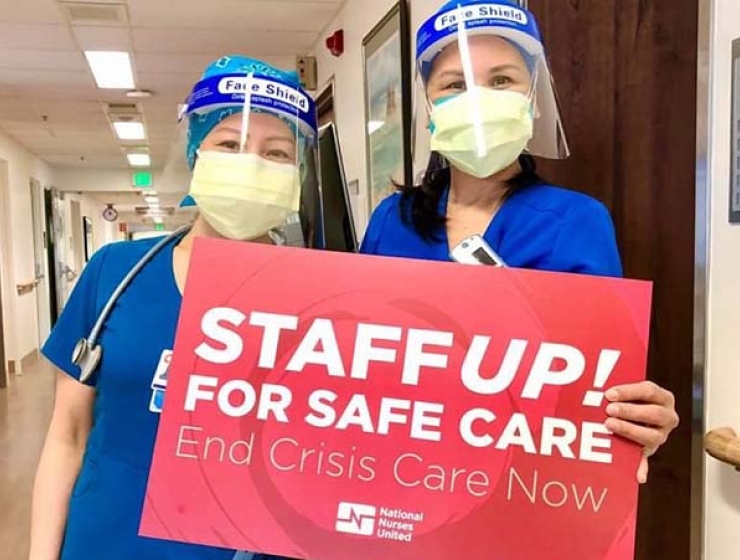
RN Staffing Ratios: A Necessary Solution to the Patient Safety Crisis in U.S. Hospitals
NNU/CNA’s proposal for minimum, mandated, nurse-to-patient staffing ratios protects our patients’ right to nursing care. Read our booklet to learn more.
Protecting and Retaining California’s Nursing Workforce
There is no shortage of registered nurses in California; rather there is a shortage of nurses willing to work in unsafe environments. Read our whitepaper to learn more.
Protecting Our Front Line: Ending the Shortage of Good Nursing Jobs and the Industry-created Unsafe Staffing Crisis
In this report, National Nurses United describes how the hospital industry has driven registered nurses from the bedside.
RN Staffing Ratios Whitepaper
Learn more by reading NNU's staffing ratios whitepaper.
Videos
Safe staffing ratios protect patients and nurses
Safe RN ratios have been proven to improve the quality of care and nurse recruitment and retention in California hospitals.
California Nurses Association organized—and won safe staffing ratios
California’s historic first-in-the-nation safe staffing ratios took 13 years to win and have been in effect since January 2004 despite continued efforts of the hospital industry to overturn the law.
Safe staffing ratios help nurses address disparities in health care
Studies show that staffing ratios save lives, yet understaffing is a major issue RNs struggle with every day. Together, we can change that.


